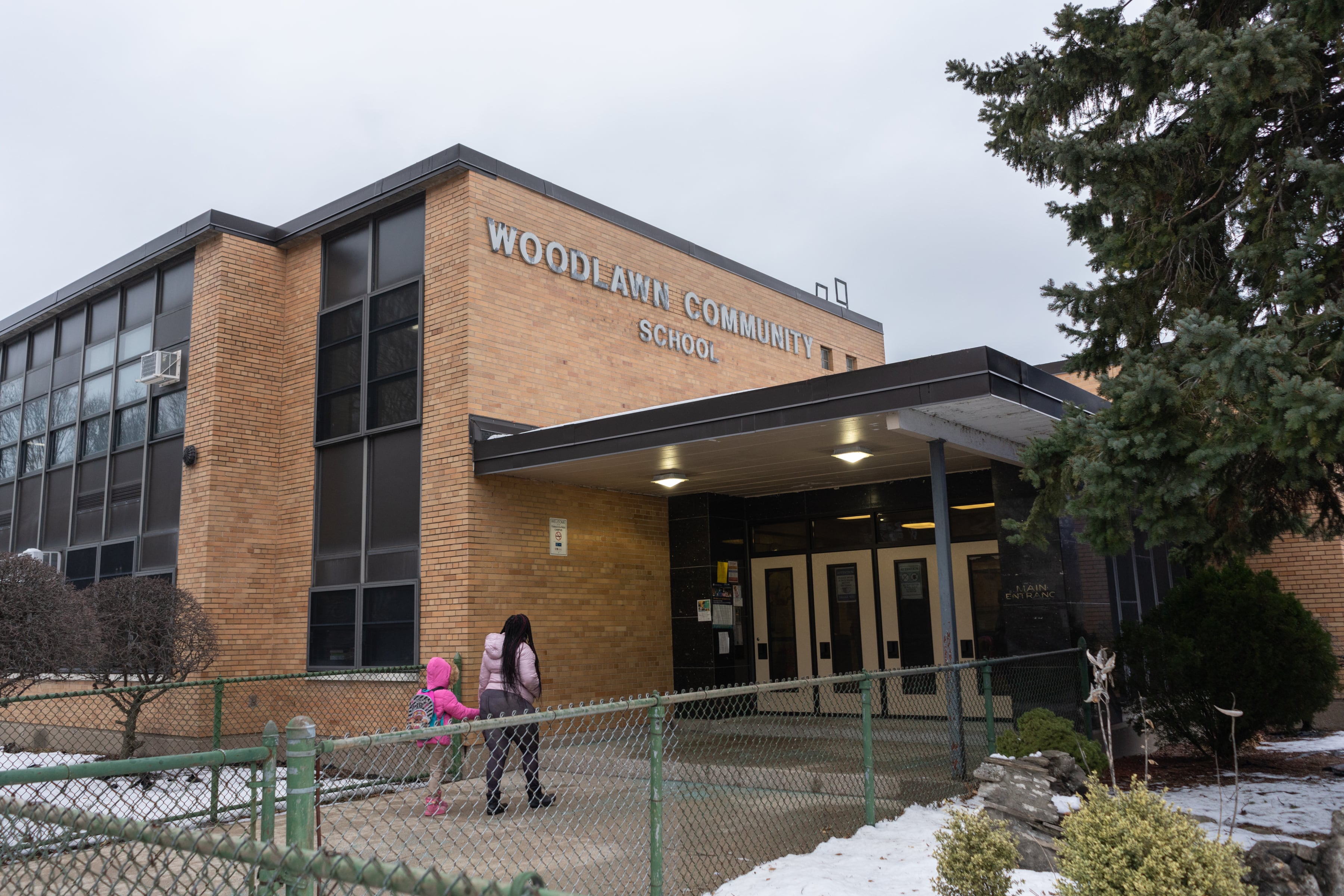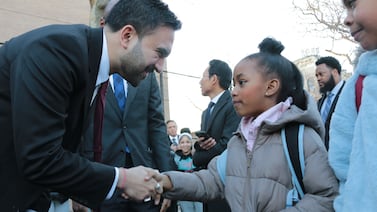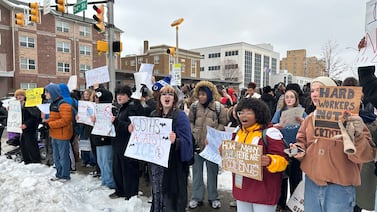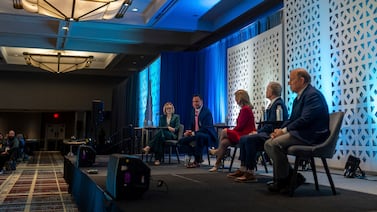In Chicago and beyond, the pandemic strained the ties between schools and families like never before: Some students tuned out virtual instruction, disengaging from learning completely. Once students were back in the classroom, parents craved information and reassurance about how schools were keeping their children safe amid surge after COVID surge.
But the upheaval also forced schools to rethink how they reach out and engage with families, in some cases inspiring new ways of keeping them in the loop. A new study by the University of Chicago’s Consortium on School Research zeroes in on what worked well in school-family communication during the outbreak — strategies worth sticking with even after COVID’s disruptions recede.
In dozens of conversations with parents, students, educators, and school staff, the researchers found key upsides of pandemic-era outreach: Schools embraced virtual meetings that removed some barriers to participating, and they adopted mobile apps that allowed them to connect with caregivers and troubleshoot in real time. Some campuses empowered support staff — from paraprofessionals to security guards — to communicate with families, creating more points of connection. And educators came to appreciate more fully the importance of outreach that’s not just about attendance and grades — the value of just checking in or listening.
But the study also reaffirmed an important takeaway of previous research: Communicating with families — rather than being haphazard or improvisational — should be governed by a clear plan designed by school leaders. Educators and other staff often spoke about needing more support and guidance.
“School leadership plays a key role in getting everybody on the same bandwagon,” said David Orta, senior research analyst at the consortium, who co-authored the report with Vanessa Gutiérrez.
Gutiérrez, who like Orta is a Chicago Public Schools graduate, brought to the project memories of her own immigrant family struggling to navigate the public school system in the 1990s and 2000s. She said she worried about adding another responsibility to the to-do lists of harried parents and other caregivers — but found that they were eager to share their experiences, with focus groups usually running much longer than planned.
In partnership with Chicago Public Schools, the authors held focus groups with about 60 caregivers, students, and school employees on the city’s South and West sides during the fall and winter of the 2020-21 school year.
Parents and educators extolled the convenience of virtual meetings, such as parent-teacher conferences on Google Meet, and the usefulness of phone apps such as Remind and Google Voice for quick, direct communication. One high school teacher told of worrying about a student whose camera was off during a midterm. The teacher messaged the student’s caregiver, and the camera came on right away, showing the student at work on the exam. The improved translation functions of that technology also made communication between teachers and parents easier.
Teachers and caregivers said they really appreciated outreach and events — from a family night featuring reading aloud, bingo, and mask-making to an informal, attendance-optional literacy night that did away with a strict agenda and punitive approach. Home visits and routine wellness check-ins also helped teachers and staff forge bonds outside the more traditional communication about academic and behavioral issues.
“It’s the idea that schools really are communities, and there need to be opportunities for community-building in interactions with families,” Orta said.
Those events and similar efforts also helped connect parents and build rapport among them, making them feel more supported during a trying time. The pandemic also highlighted how knowing a school’s families and their cultural backgrounds can power effective communication.
But educators also related a central challenge: often feeling they were on their own when it came to communicating with their families. Even generally supportive school leaders did not always offer enough guidance and information for fielding questions and concerns from parents.
Gutiérrez said the conversations for the study were healing amid the pandemic.
“For me, the stories of our participants reminded me of the strength, creativity, and persistence that lives in our schools and communities, specifically Black and brown communities,” she said. “There was an understanding that folks needed to have grace and flexibility for one another.”
Mila Koumpilova is Chalkbeat Chicago’s senior reporter covering Chicago Public Schools. Contact Mila at mkoumpilova@chalkbeat.org.






